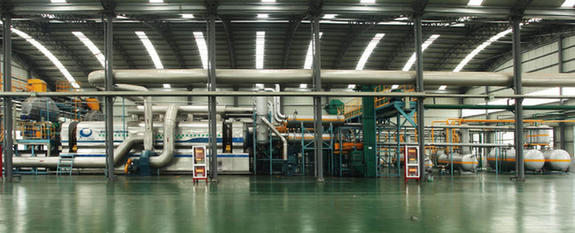Dynamic Private Enterprises in Shandong
A joint survey by Shandong Administration for Industry & Commerce and Shandong Academy of Macroeconomic Research found that current regulations require official pre-approval for 292 items in the application for a business license. In recent years, Shandong has made efforts to streamline the approval process by decentralizing and simplifying approval procedures. Barriers to private investment have been reduced to encourage market activity.
However, private companies continue to complain that their burdens remain heavy. New projects now need a score of assessment reports from government-designated agencies in the course from planning to implementation, which offset benefits of reforms. The government has acknowledged the need for greater change and has pledged to further simplify ratification procedures. It has also changed the policy on assessment reports by allowing companies to choose facilitating agencies in different areas to issue the most necessary assessments.
At the same time, the local government attaches great importance to increasing ratification efficiency. Government service centers at every level are urged to accept applications for business licenses and other certificates for new businesses at “one counter.” Better coordination and cooperation among government departments would obviate applicants from shuffling between different offices. “The time cost saved by the reform on ratification procedures is considerable,” said Gao Fuyi, head of the Shandong Academy of Macroeconomic Research.
Breaking the “Glass Door” for Private Investors
“What we long for is fairness,” said Tang Yilin, president of Jinan Shengquan Group Co., Ltd. At present, many of the difficulties facing private businesses are rooted in unfair treatments.
There are three major policy obstacles impeding private investment, known colloquially as the “glass door,” “swinging door” and “revolving door.” Although government policies may not explicitly bar private companies in certain fields, in practice they are often blocked from getting a foot into those areas. Prejudice against private enterprises remains, and double standards are applied to private and state-owned enterprises in market access, security deposits, and other issues.
For this reason, one of the important principles in the new guidelines is guaranteeing equal rights, opportunities and rules for all businesses and removing hidden barriers to private investment. The measures also permit private capital to take part in state-owned enterprise reforms and reorganizations. No limit on the shares held by private investors will be defined in competitive sectors. And rival capital is encouraged to hold controlling interest in multi-ownership firms. All competitive industries and investment fields will open to private capital. Moreover, Shandong will also experiment with opening monopolies and franchised industries to private investment.
The new guidelines also stipulate that no additional conditions should be imposed on private enterprises when they are involved with governmental funds, government procurement or loans from international financial organizations and foreign governments. Furthermore, private companies will receive the same treatment as state or collectively owned enterprises in land leases, supply and other aspects. Equal opportunity will be given to the heads of private companies in attending high-level conferences, career trainings and economic and trade cooperation. All these measures aim at providing private investment with a level playing field and a better market environment.
Shandong’s New Measures to Boost Private Economy
It is projected that by the end of 2017, Shandong will have more than 1.3 million private enterprises, with an annual average growth of around 15 percent. More than 20 million people will be employed by individual businesses and private companies, and the number is expected to grow by eight percent per year. The added value generated by private economy is expected to take up over 50 percent of GDP. In order to create a better business environment for private companies, the Shandong provincial government has executed reforms in the following areas:
Simplifying ratification procedures: Local governments at every level must list administrative requirements and release them to the public before the end of 2014. Items that are not listed will not be subject to administrative approval.
Increasing ratification efficiency: Government service centers at every level must accept applications for business licenses and other certificates for new businesses on “one counter.” Applicants will no longer need to shuffle between offices of different government departments.
Escalating reforms on the business registration system: New businesses will be given licenses before being granted the required administrative approvals. Annual inspections on corporations will be replaced by annual reports by individual companies that will be made public.

